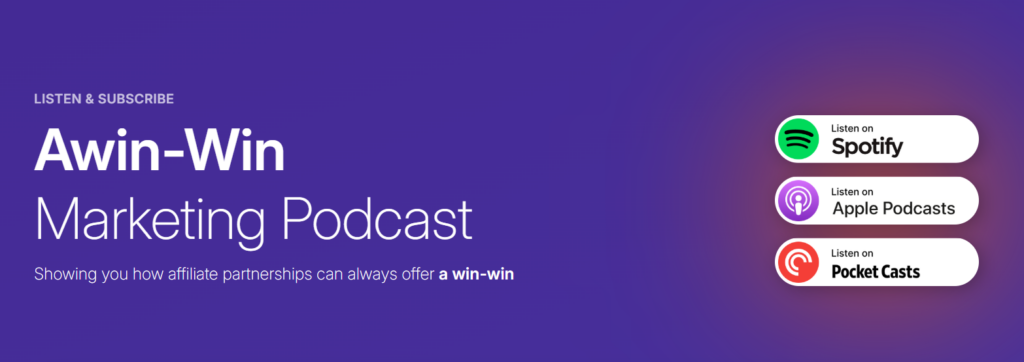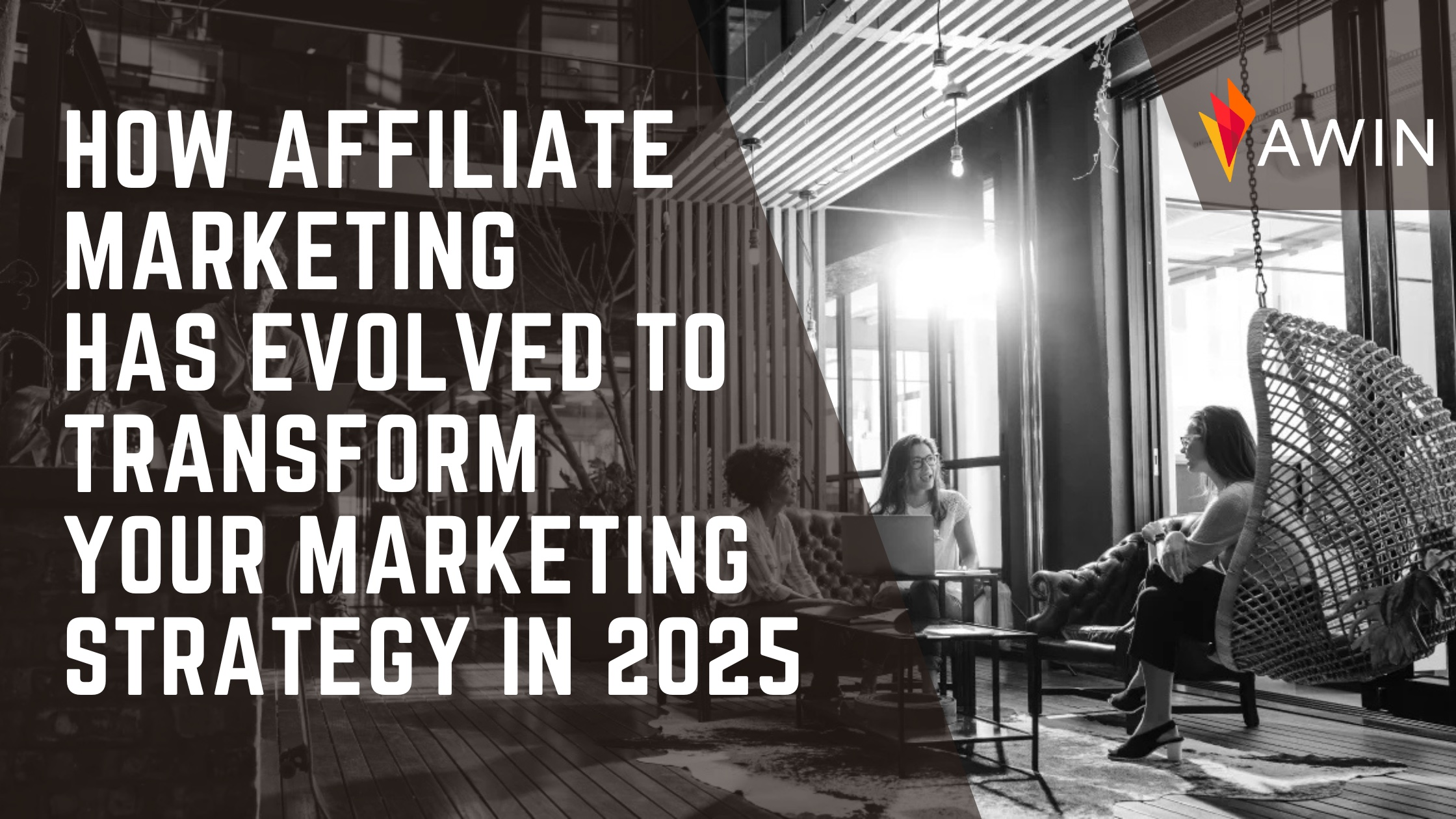How Affiliate Marketing has evolved to transform your marketing strategy in 2025
Affiliate marketing has come a long way since its early days. Once seen as a tactic for driving a small portion of bottom-of-the-funnel conversions through discount codes and niche websites, the affiliate marketing landscape has evolved into a dynamic and strategic powerhouse that can help brands at every stage of the marketing funnel.
And the numbers speak for themselves. Did you know affiliate marketing spend in the US is projected to surpass $10 billion this year? It’s no surprise senior marketers are paying closer attention. A recent study commissioned by Awin and conducted by Forrester found 92% of senior marketers now view affiliate marketing as effective or highly effective, ranking it just behind content marketing and PPC. So, why isn’t every business tapping into this powerful channel yet?
As Max Willens, senior analyst at EMARKETER, puts it: “Affiliate, to my mind, is one of the most under-discussed and underappreciated spending areas in media and advertising.”
To uncover why that might be – and to explore the growing role of affiliates – I spoke with Rachel Tyrer, VP of Customer Success at Awin.
As a leader in the space, global affiliate platform Awin is driving the expansion of affiliate marketing solutions, offering modern strategies that help brands build long-term customer relationships and achieve meaningful results.
So, let’s dive into how affiliate marketing has evolved and why it’s becoming indispensable for modern marketing strategies.
Debunking myths: What Affiliate Marketing Is and Isn’t
To understand the full potential of affiliate marketing, we need to first address some common misconceptions.
“The affiliate space is more diverse and dynamic than ever, yet some marketers still view affiliates as solely focused on bottom-of-the-funnel tactics like discounts through coupon sites,” says Rachel. “While that perception may have been accurate in the past, today’s affiliate landscape is far more expansive and sophisticated. Content creators and influencers, for instance, are now pivotal players, driving brand awareness and shaping purchasing decisions much earlier in the customer journey.”
Another common misconception is that affiliate marketing is just a quick fix for short-term gains or sales spikes. In reality, true success in affiliate marketing comes from a long-term strategy focused on consistent investment and building strong, trusted partnerships. These partnerships drive not just immediate results but lasting brand awareness and customer loyalty.
Take StackCommerce and Penske Media as an example. Their partnership shows how affiliate strategies can create steady, ongoing revenue streams. Penske Media has leveraged affiliate marketing to consistently engage its audience and deliver sustainable results, proving that it’s about much more than quick wins – it’s about cultivating long-term growth and loyalty.
And for those who think affiliate marketing is only for big businesses, there’s good news: affiliate marketing is incredibly scalable. It can be tailored to businesses of any size, making it an ideal solution for small and medium-sized businesses that think they lack the resources to run a successful affiliate program.
With these misconceptions cleared up, it becomes obvious that affiliate marketing today offers far more than simple conversions. So, let’s take a deeper look at how modern affiliate strategies are being used to enhance every stage of the marketing funnel – from awareness to retention.

Affiliate Marketing – A strategic tool for every stage of the funnel
Modern affiliate marketing goes beyond just last-click attribution, making it a vital part of omnichannel strategies that help brands tackle diverse marketing challenges and build long-term, sustainable growth. By leveraging various affiliate strategies, brands can enhance their reach and impact across the entire customer journey.
“One of the most significant shifts in the affiliate industry has been the diversification of both partners and strategies available to brands,” says Rachel. “Today’s affiliate ecosystem encompasses content creators, bloggers, influencers, media platforms, cashback sites, subscription services, and cutting-edge technologies enabling brands to engage potential customers throughout the entire journey – from initial discovery at the top of the funnel to meaningful post-purchase interactions.”
This diverse and evolving ecosystem means affiliates now contribute at every stage of the funnel. Let’s break down how affiliates help brands achieve success from awareness all the way through to retention:
1. Awareness: Reaching new audiences
At the top of the funnel, affiliates like content creators, bloggers, and influencers excel at introducing your brand to new audiences. These partners craft engaging stories, reviews, and videos that align with their audience’s interests, helping your brand gain visibility and build trust early on. For example, a fitness influencer might create engaging videos featuring a brand’s products, linking viewers to purchase pages through affiliate tracking. This diversifies the affiliate channel’s impact from purely transactional to storytelling and brand building.
2. Consideration: Building credibility
When potential customers are evaluating options, affiliates such as review sites and comparison platforms step in. They provide detailed product insights, comparisons, and testimonials, positioning your brand as a trustworthy choice. By leveraging these partners, businesses can nurture interest and guide customers closer to a purchase decision.
3. Conversion: Closing the sale
At the bottom of the funnel, traditional affiliate models like coupon and cashback sites still play an essential role. These partners provide that final nudge, encouraging customers to complete their purchase by offering value-added incentives. Additionally, tech partners like dynamic cart recovery tools can help ensure that no potential sale slips through the cracks.
4. Retention: Fostering loyalty
Affiliate marketing isn’t just about acquiring new customers – it’s also about keeping them. Loyalty affiliates, such as referral programs, subscription services, and membership-based partnerships, help retain customers by offering perks for repeat purchases. For instance, partnering with a rewards app can encourage customers to stay engaged with your brand in the long run.
By tailoring your affiliate strategy to each stage of the funnel, you can create a holistic approach that maximizes value at every touchpoint.
The role of technology partners in affiliate marketing
Technology partners have become key players in affiliate marketing, offering the tools and solutions that can help brands significantly enhance conversion rates and overall site performance. These partners provide innovative tech like AI-driven shopping assistants, personalized product recommendations, and customer retention tools that allow businesses to create more engaging and effective customer journeys.
According to Awin data, over the past two years, brands have increasingly tapped into technology partners to elevate their campaigns, attract more qualified traffic, and boost conversions. Platforms like Upsellit and SaleCycle specialize in on-site remarketing, helping brands recover abandoned carts and deliver personalized product suggestions at the right moment – ensuring a data-driven, scalable approach that maximizes ROI.
Position Your Brand for Success with Affiliate Marketing in 2025
Today, affiliate marketing is a dynamic, all-encompassing strategy that supports brands across every stage of the marketing funnel. Whether you’re aiming to increase visibility, drive conversions or nurture customer relationships, affiliate marketing is an essential tool in achieving your business goals in 2025.
As the industry continues to innovate, brands that embrace the full potential of affiliate marketing will be well-positioned to thrive in tomorrow’s competitive marketplace.
Ready to evolve your marketing strategy? Start exploring the endless possibilities that modern affiliate marketing offers, and partner with leaders like Awin to unlock your brand’s full potential.

